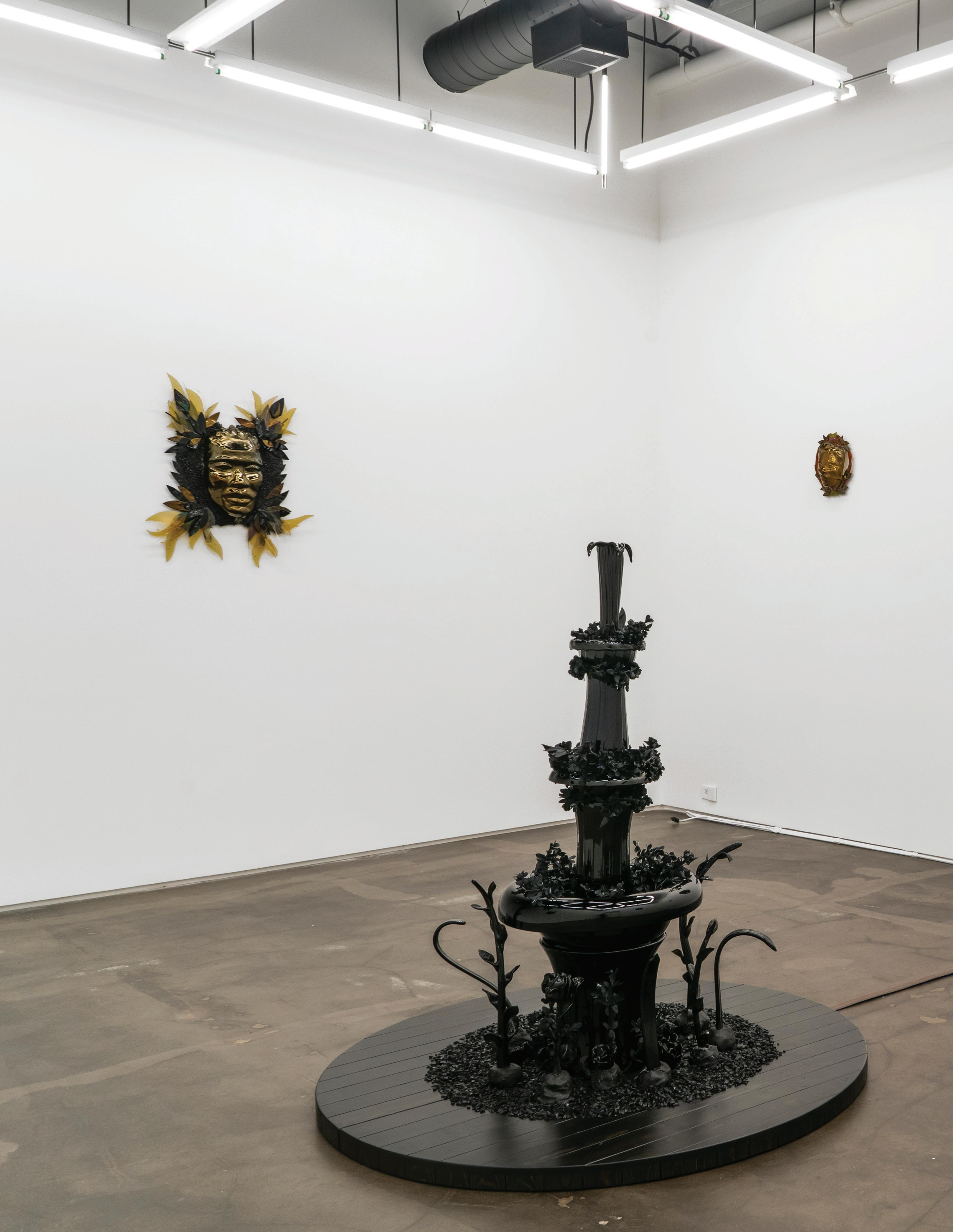
5 minute read
Artist in Conversation
12
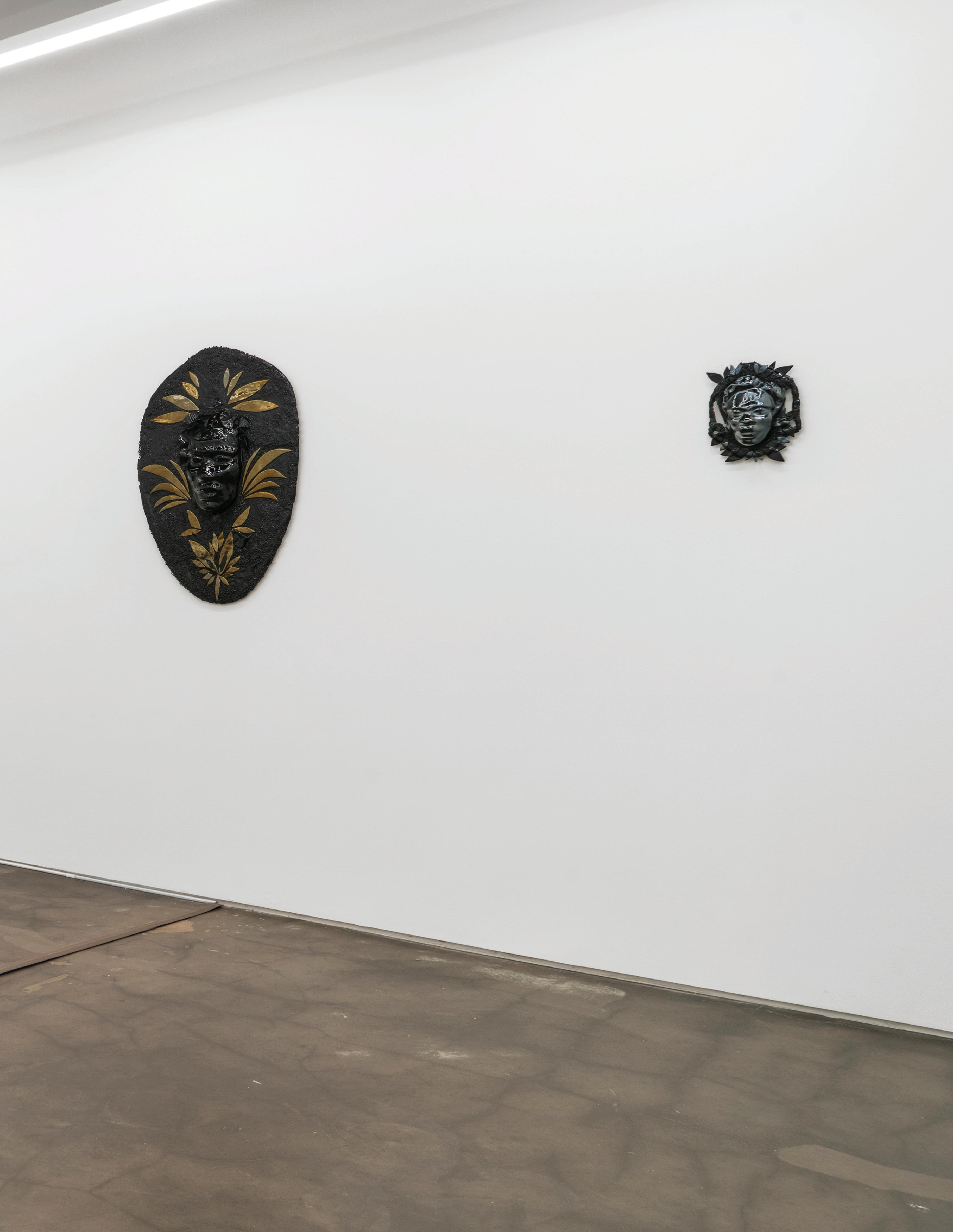
Advertisement
13
Conversations with my Grandmother Layo Bright and Mrs. Agnes Tinuola Ifaturoti
Below is an abbreviated transcription of several conversations between Layo Bright and her grandmother Mrs. Agnes Tinuola Ifaturoti recorded in December 2019. These conversations discuss the strong matriarchal presence in Bright’s family linage and reference the book To Have and To Hold authored by maternal grandparents Kunle and Tinu Ifaturoti.
Layo Bright: *reading from text by Grandmother, about my great Grandmother’s wedding date* Miss Frances Solabomi Olufowora. Daughter of Chief Olufowora of Igbein, Abeokuta. Wedding date 22nd April 1926, St. Petersburg, Abeokuta.
Grandma Tinuola: The church is no longer in use, because there’s a new church. It’s a tourist attraction now.
Layo: *looks at photo and reads text on the back of it. Text is in Grandmother’s writing* Mama Majek holding baby Bukola Bright.
Tinuola: This is 4 generations. Mama came to visit us and Debisi happened to be there too.
Tinuola: I knew my grandmother, she died in 1921. We called her Mama Igbein. February 5, 1964. She died in Ibadan, and my mother was looking after her in Ibadan prioir to that. Her name was Rosaline Kehinde Olufowora. She’s supposed to be a Sierra Leonean. Her husband had many wives like men of those days.
Layo: She was Sierra Leonean?
Tinuola: She was from Sierra Leone, and she used to speak English the way they spoke it there. 3 children survived her: Mrs. Adetayo, then my mum, then a son Mr. Olufowora. I wish someone could write all this history. Daddie (my Grandfather, her husband) attempted but he didn’t finish. He remembered his line, and I remember my father and grandfather’s. That was how far I
1414
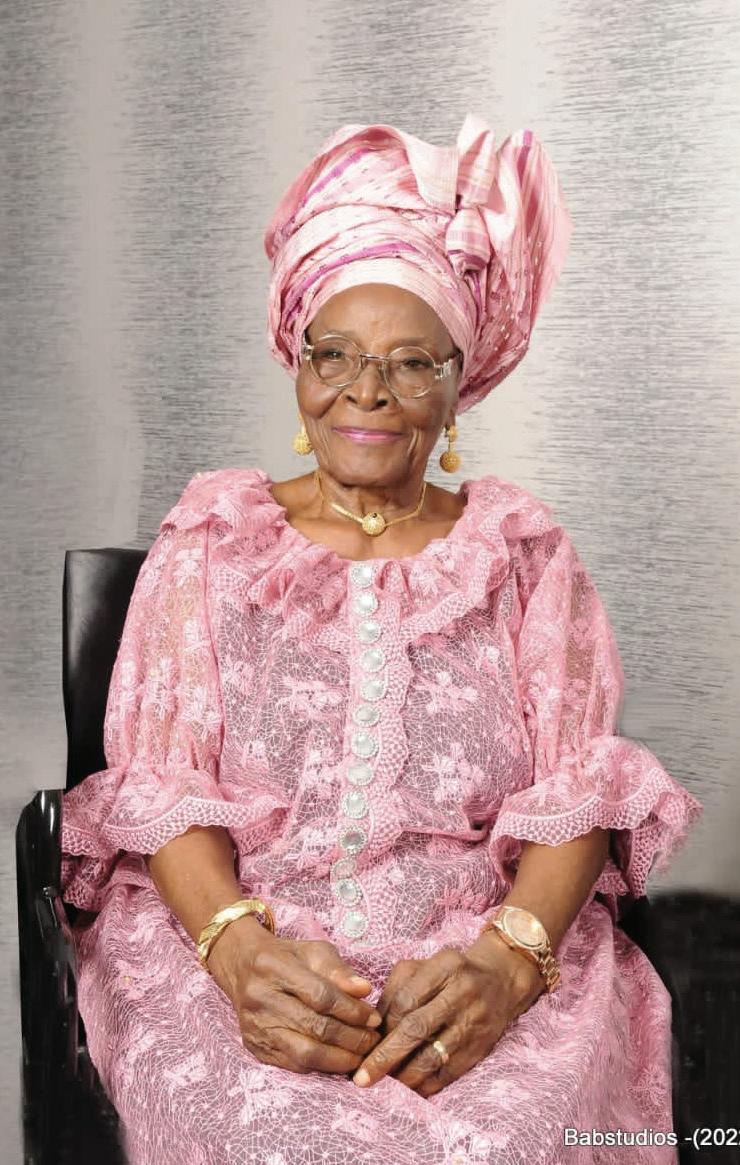
Layo Bright’s grandmother, Mrs. Agnes Tinuola Ifaturoti. Taken in 2022 the year she celebrated her 90th birthday at Rockhaven. could go. Layo: I’ll join it all and continue on.
Tinuola: You can’t know more…you know your parents and grandparents but not your great grandparents. History is interesting…I’m the only one left now. There are some things I’d like to ask my sisters but they’re gone now. We knew a bit about our mother’s side because we knew her (grandmother) and used to go and visit her when we were little in Abeokuta. They lived very close to the Abeokuta Grammar School and our grandfather, Olufowora, we didn’t know him but they said he owned the land on which the Abeokuta Grammar his father and grandfather’s school was built. Our grandmother lived very close to the church and the grammar school very many ago.
Olufowora was a very infl uential man with a big compound, and I still remember that each wife had her own home leading to a verandah.
Layo: How many wives did he have?
Tinuola: I don’t remember but my mother had many sisters and brothers. She wrote down their names somewhere…
Tinuola: This is my mother’s handwriting…I remember when Kike was in Queen’s School Ibadan when her grandmother used to visit her. Her friends would say “So your grandmother is literate?!” I said in Abeokuta, most people are literate…So she wrote this. This is the letter she wrote to me before she died. This is the photocopy.
1515
T
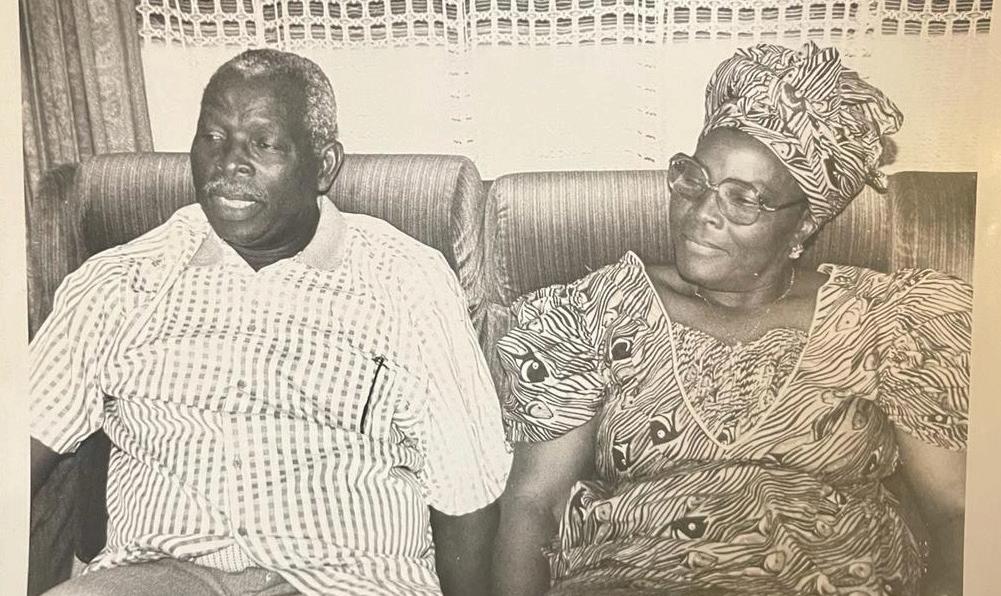
Layo Bright’s grandfather, late Dr. Ezekiel Adekunle Ifaturoti and grandmother, Mrs. Agnes Tinuola Ifaturoti
Layo: I can’t read it, it’s in Yoruba.
Tinuola: Chief Pa Olufowora Williams, the Are of Igbein, died in 1913. And all these people are his sons and daughters. This is in my mother’s handwriting. She died in 1985, October 3rd. We buried her on October 12th on your mum’s birthday. She (your mum) was there. Within 9 days we did the burial. I remember the coffin maker was within walking distance. Actually, she died in our house in Ilesha. We had sent for my sister so when she died my sister and I were there. We were going to call my other sister Mrs. Edun to come that day but we couldn’t. She had died that day. And we took her to the mortuary in Ibadan. This was in 1985.
Papa died in 1983. It was on the day we were burying him that my aunty died, the elder sister of my mother. And they lived in the same neighborhood. In 1983… if I had time, I’d have brought a book about wars in Egbaland. Lawale Edun’s father was one of the people who ruled Abeokuta. You don’t know the history of Abeokuta. We had our own kingdom, Egba United Kingdom. We ruled ourselves.
1616
Layo: I didn’t know about all of that, or the Egba side.
Tinuola: You see it’s a bit diffi cult for us because even though we were all born in Abeokuta, our father moved to Ibadan in 1942. And around that time a lot of young men thought Ibadan was more than Abeokuta, and people from Ijebu and Abeokuta moved to Ibadan. Even though we had moved to Ibadan, our house in Abeokuta was still there and our relations were still living there. They even made my father a Chief in Abeokuta. What broke the continuity was when he married a second wife. You know Tolu Majekodunmi. He is the fi rst child of the second wife.
That woman who my father married and brought into our family. It broke up our unit. It was father, mother and 3 daughters. But when she came, she came in 1948, it broke up that union. And at least now they’re all dead and gone, we’re friendly with our half brothers and sisters. That part of our family history is not a pleasant one. The pleasant one was when my father had only 1 wife and us 3 daughters. We were 16 and my sister was 21 when Papa married a second wife. We were all living in the family house. It’s not a time I like to remember. We were all living together in the house in Ibadan till I got married at 21. And that was when Mama had to leave her marital home, until she died. We built her a house. At that time she was living alone, on her own, forced to leave her marital home. She lived there for 7 years before she died.
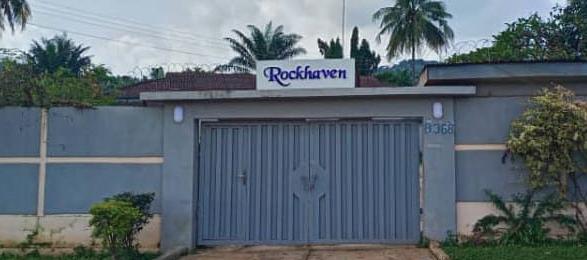
Layo Bright’s family home in Nigeria, Rockhaven, photographed by Bright’s mother in 2022.
1717



